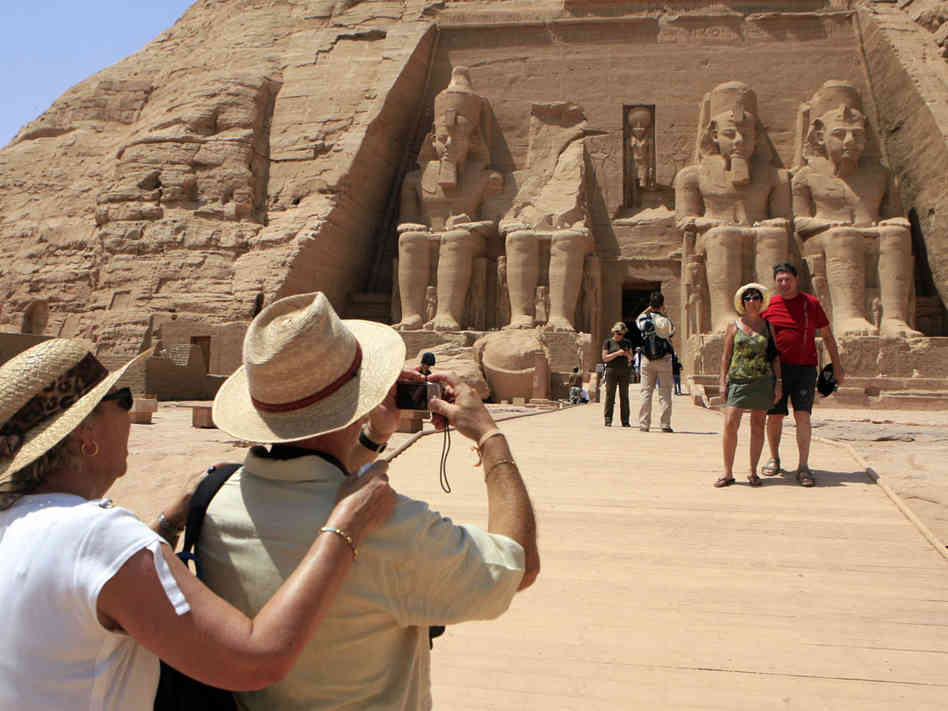Manal Awad, Egypt’s Minister of Local Development and Acting Minister of Environment, has met with Ghimar Deeb, Deputy Resident Representative of the United Nations Development Programme (UNDP) in Egypt, to review current and future cooperation between the ministry and UNDP. The discussions focused on the progress of joint projects, their successes, and the challenges encountered.
The Saturday meeting was attended by Mohamed Bayoumi, Assistant Resident Representative of UNDP; Heba Wafa, Director of Local Development, Social Inclusion and Women’s Empowerment Programmes at UNDP; Hoda El Shawadfy, Assistant Minister for Ecotourism; Soha Taher, Head of the Central Administration for Climate Change and International Cooperation; and Mona Shehab, World Bank Project Coordinator at the Ministry of Local Development.
Awad reviewed a comprehensive presentation assessing the status of projects jointly implemented with UNDP. The evaluation covered project management mechanisms, progress achieved compared with planned timelines, challenges faced, and the measures taken to address them.
The presentation highlighted joint projects in climate change and biodiversity, including Egypt’s international reporting obligations—such as transparency reports, biodiversity reports, and national adaptation plans. These reports serve as key references for the ministry’s work across areas including climate change, water, energy, agriculture, coastal protection and biodiversity.
Among the reviewed implementation projects was the Green Sharm initiative in Sharm El-Sheikh, a major success story that followed Egypt’s hosting of the Climate Conference. Another was the Red Sea Protection Project, which includes coral reef preservation and exemplifies long-term cooperation with UNDP in safeguarding Egypt’s nature reserves. The Migratory Birds Protection Project—focusing on renewable energy projects, particularly wind farms—was also highlighted as a notable success.
Awad emphasised the ministry’s role as Egypt’s national focal point for key UN-affiliated international financing mechanisms, including the Green Climate Fund, the Global Environment Facility, and the Adaptation Fund. Through these, the ministry supports projects for other ministries, such as the coastal protection project of the Ministry of Water Resources and Irrigation, funded by the Green Climate Fund—one of the largest in the Arab region. The ministry also plays a coordinating role in electricity sector mitigation projects, funded by the Global Environment Facility, as well as energy-efficient building initiatives.

The meeting also reviewed ozone-related projects implemented in cooperation with UNDP and the United Nations Industrial Development Organisation (UNIDO), as well as progress on Egypt’s National Adaptation Plan for Climate Change.
Awad was briefed on projects supporting local communities in nature reserves, including the Gharqana Village initiative in the Nabq Reserve, South Sinai. The project offers services to residents and creates jobs for women, girls, and Bedouin communities through the production and marketing of handicrafts. She also discussed future tourism development in the area.
She directed the adoption of specific development measures for Wadi Degla Reserve to strengthen its protection, preserve its natural resources, and boost ecotourism. In addition, she reviewed projects to support private sector participation in solar power plant development, particularly in Sharm El-Sheikh, stressing the importance of removing implementation obstacles to encourage wider reliance on renewable energy.
In conclusion, Awad underlined the importance of sustained coordination with UNDP to accelerate progress and expand the scope of joint projects. She stressed that maximising the benefits of international partnerships is vital to meeting global challenges and reinforcing Egypt’s position as a regional leader in environmental and climate action.




